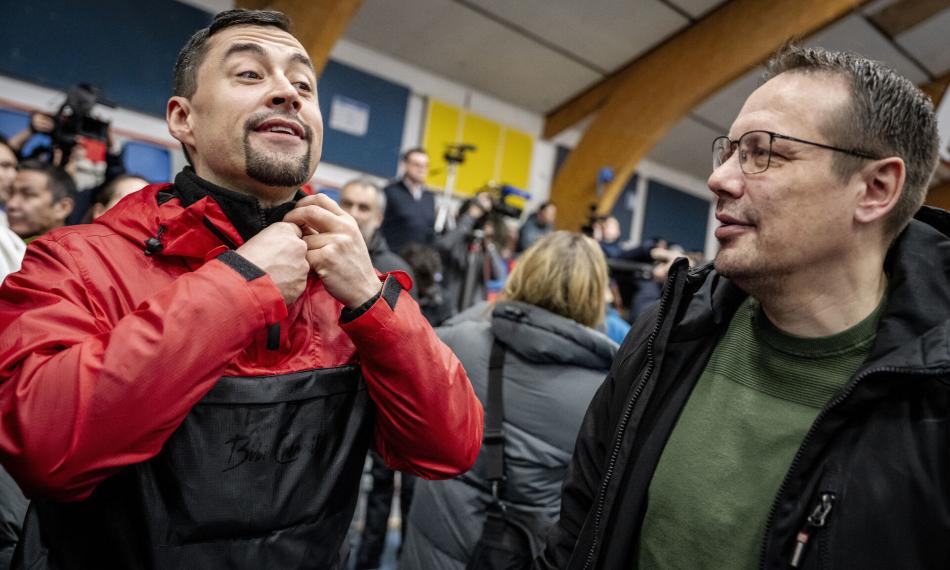Intelligence Services: No Signs of Coordinated Foreign Interference in the Greenlandic Election

-
There are no signs that foreign intelligence services have attempted to influence the election for the Greenlandic parliament, Inatsisartut, Danish intelligence services
-
However, misinformation has circulated during the election campaign, particularly through fake profiles and distorted facts on social media
-
TjekDet has documented examples of politicians' quotes being misused and old controversial narratives being revived
Note: The article below is an English version of this originally Danish article.
There are no signs that foreign intelligence services have attempted to influence the election for the Greenlandic parliament, Inatsisartut, earlier this month. This is the conclusion of the Danish Defence Intelligence Service (FE) and the Danish Security and Intelligence Service (PET) in a new assessment.
Although there has been significant international interest in the election, authorities have not found evidence that foreign intelligence services have orchestrated systematic influence campaigns.
"Despite great international interest in the election, the services have not uncovered prepared, systematic, and coordinated influence activities from foreign intelligence services," write PET and FE in the press release.
However, misinformation has spread during the election campaign, particularly on social media. False and manipulated information has circulated, and fake profiles have posed as Danish or Greenlandic politicians. Even though this misinformation does not appear to have been part of a coordinated effort, it may still have influenced the election campaign.
"This type of misinformation – regardless of the sender – can potentially contribute to polarizing debates and can be used by foreign states as disinformation in influence campaigns," write PET and FE.
In 2018, the then Venstre-led government decided to establish a unit tasked with handling and monitoring threats from state-led influence campaigns. This unit, named Task Force Influence, consists of various ministries and authorities, including the Ministry of Foreign Affairs, the Ministry of Justice, Greenlandic and Faroese authorities, the Danish Defence Intelligence Service, the Danish Security and Intelligence Service, and the Danish Agency for Civil Protection.
The unit has closely followed the election campaign and will continue to monitor threats from foreign actors attempting to interfere in the public debate.
"Authorities are continuously working to strengthen society against threats from foreign forces that unlawfully attempt to influence democratic processes," PET and FE report.

Intelligence services confirm the conclusion
Thomas Hedin, editor-in-chief of TjekDet, agrees that misinformation has played a role, but without clear signs of a coordinated effort from foreign authorities. Instead, there have been scattered attempts to influence the debate, with some of the senders identifiable, while others remain unclear.
"We have not identified a comprehensive disinformation strategy targeting the election orchestrated by foreign powers, but there have been instances of misinformation from various actors," says Thomas Hedin.
One of the clearest examples is the use of fake profiles on social media. A false political profile was created on X, where Greenland's Prime Minister, Múte B. Egede, was falsely attributed with a harsh and highly critical statement about the U.S. administration's interest in Greenland. The profile gained widespread attention but was later proven to be fake.
In another case, Danish SF politician Karsten Hønge was misrepresented in false pro-Russian posts, where he was wrongly quoted as thanking Russia for supporting a conflict with the U.S.
"False quotes and manipulated posts are a well-known method of influencing public debate, and we have seen several examples of this during the election campaign," says Thomas Hedin.
Old narratives revived
Misinformation during the election campaign has not only involved new false stories but also older narratives that have been revived and amplified. Particularly controversial issues regarding various aspects of the Denmark-Greenland relationship gained new traction through misinformation.
"It is not uncommon for old disputes to be exaggerated through misleading facts and omissions of important nuances, and this has also been the case in this election campaign," says Thomas Hedin.
One example is the DR documentary about Greenlandic cryolite extraction, which suggested that Denmark had profited enormously from mining without giving anything back to Greenland. The financial figures highlighted in the documentary were criticized for being misleading. Although DR later withdrew the documentary, its figures continued to play a one-sided role in political debates during the election campaign.
"We have seen how claims from the documentary have been repeated again and again, even after it was retracted. This shows how difficult it is to correct misinformation once it takes hold," says Thomas Hedin.
If you enjoy TjekDet's articles and want to make sure you don't miss the latest ones, follow us on Facebook by clicking here. You can also sign up for TjekDet's free newsletter, where we notify you about our latest fact-checks—delivered straight to your inbox. Sign up for the newsletter here.





